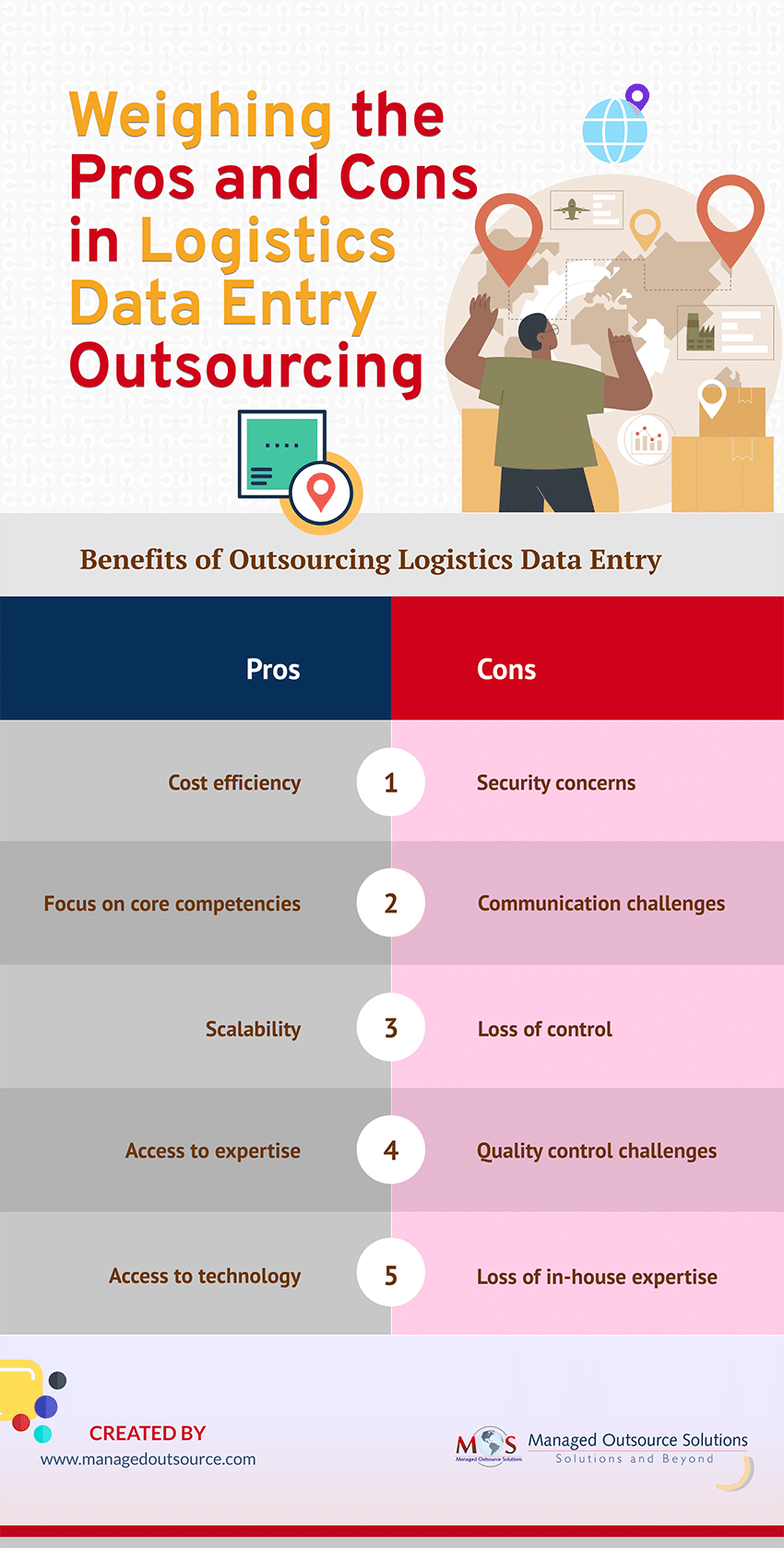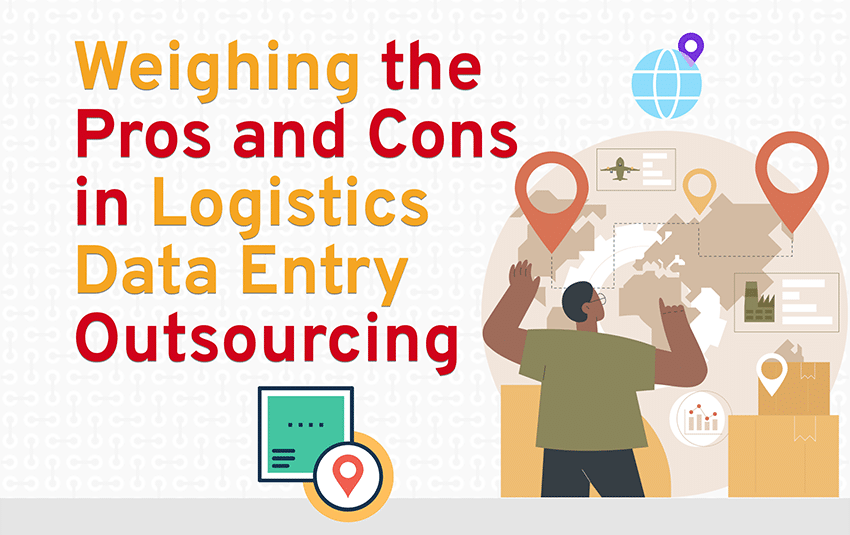Data entry in the logistics sector refers to the process of inputting and managing information related to the movement, storage, and distribution of goods within a supply chain. This critical aspect of logistics and supply chain management involves the accurate and systematic recording of data such as product descriptions, quantities, shipping details, inventory levels, and tracking information. Logistics data entry plays a pivotal role in optimizing operations, ensuring timely deliveries, and enhancing overall supply chain efficiency. It involves the use of specialized software and systems to maintain accurate records, track shipments, and provide real-time insights into the status and performance of goods as they move through the supply chain.
Benefits of Outsourcing Logistics Data Entry
Logistics businesses are increasingly outsourcing data entry for several compelling reasons. Data entry outsourcing offers cost-effective solutions, allowing these companies to reduce operational expenses associated with hiring and training in-house staff, maintaining software, and infrastructure costs. Moreover, outsourcing allows logistics businesses to focus on their core competencies, improving overall operational efficiency and competitiveness. Outsourcing offers scalability, enabling companies to flexibly adjust their data entry needs according to fluctuations in workload or seasonal demands. Outsourcing providers often employ experienced teams and advanced technology, ensuring higher accuracy, data quality, and faster turnaround times.
However, outsourcing also comes with disadvantages such as security concerns, communication challenges and loss of control.
Blending these approaches can optimize efficiency.Assess your specific requirements, analyze the advantages of each approach, and customize your strategy to ensure smooth logistics data management.
Check out the infographics below





